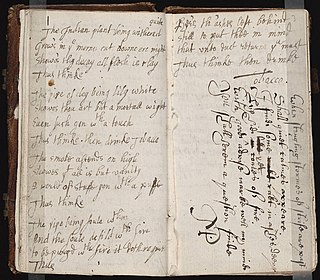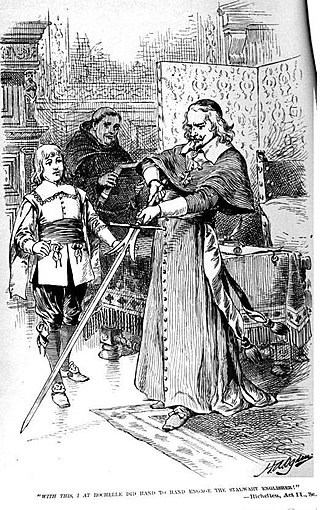Related Research Articles

Latin is a classical language belonging to the Italic branch of the Indo-European languages. Latin was originally a dialect spoken in Latium, the lower Tiber area around present-day Rome, but through the power of the Roman Republic it became the dominant language in the Italian region and subsequently throughout the Roman Empire. Even after the fall of Western Rome, Latin remained the common language of international communication, science, scholarship and academia in Europe until well into the 18th century, when other regional vernaculars supplanted it in common academic and political usage. For most of the time it was used, it would be considered a "dead language" in the modern linguistic definition; that is, it lacked native speakers, despite being used extensively and actively.

A proverb is a simple, traditional saying that expresses a perceived truth based on common sense or experience. Proverbs are often metaphorical and use formulaic language. A proverbial phrase or a proverbial expression is a type of a conventional saying similar to proverbs and transmitted by oral tradition. The difference is that a proverb is a fixed expression, while a proverbial phrase permits alterations to fit the grammar of the context. Collectively, they form a genre of folklore.

Pavia is a town and comune of south-western Lombardy, in Northern Italy, 35 kilometres south of Milan on the lower Ticino near its confluence with the Po. It has a population of c. 73,086. The city was the capital of the Ostrogothic Kingdom from 540 to 553, of the Kingdom of the Lombards from 572 to 774, of the Kingdom of Italy from 774 to 1024 and seat of the Visconti court from 1365 to 1413.

A medieval university was a corporation organized during the Middle Ages for the purposes of higher education. The first Western European institutions generally considered to be universities were established in present-day Italy, including the Kingdoms of Sicily and Naples, and the Kingdoms of England, France, Spain, Portugal, and Scotland between the 11th and 15th centuries for the study of the arts and the higher disciplines of theology, law, and medicine. These universities evolved from much older Christian cathedral schools and monastic schools, and it is difficult to define the exact date when they became true universities, though the lists of studia generalia for higher education in Europe held by the Vatican are a useful guide.

Richard Bentley FRS was an English classical scholar, critic, and theologian. Considered the "founder of historical philology", Bentley is widely credited with establishing the English school of Hellenism. In 1892, A. E. Housman called Bentley "the greatest scholar that England or perhaps that Europe ever bred".
Peter John Olivi, also Pierre de Jean Olivi or Petrus Joannis Olivi, was a French Franciscan theologian and philosopher who, although he died professing the faith of the Roman Catholic Church, remained a controversial figure in the arguments surrounding poverty at the beginning of the 14th century. In large part, this was due to his view that the Franciscan vow of poverty also entailed usus pauper. While contemporary Franciscans generally agreed that usus pauper was important to the Franciscan way of life, they disagreed that it was part of their vow of poverty. His support of the rigorous view of ecclesiastical poverty played a part in the ideology of the groups coming to be known as the Spiritual Franciscans or Fraticelli.
The ancient Hebrews identified poetical portions in their sacred texts, as shown by their entitling as "songs" or as "chants" passages such as Exodus 15:1-19 and Numbers 21:17-20; a song or chant is, according to the primary meaning of the term, poetry. The question as to whether the poetical passages of the Old Testament show signs of regular rhythm or meter remains unsolved. Many of the features of Biblical poetry are lost when the poems are translated to English.

Kashmiri or Koshur is an Indo-Aryan language spoken by around 7 million Kashmiris of the Kashmir region, primarily in the Indian union territory of Jammu and Kashmir. Kashmiri has split ergativity and the unusual verb-second word order.

Giovanni Florio (1552–1625), known as John Florio, was an English linguist, poet, writer, translator, lexicographer, and royal language tutor at the Court of James I. He is recognised as the most important Renaissance humanist in England. Florio contributed 1,149 words to the English language, placing third after Chaucer and Shakespeare, in the linguistic analysis conducted by Stanford professor John Willinsky.

Commonplace books are a way to compile knowledge, usually by writing information into books. They have been kept from antiquity, and were kept particularly during the Renaissance and in the nineteenth century. Such books are similar to scrapbooks filled with items of many kinds: sententiae, notes, proverbs, adages, aphorisms, maxims, quotes, letters, poems, tables of weights and measures, prayers, legal formulas, and recipes.
Finnish nominals, which include pronouns, adjectives, and numerals, are declined in a large number of grammatical cases, whose uses and meanings are detailed here. See also Finnish grammar.

The Four Books of Sentences is a book of theology written by Peter Lombard in the 12th century. It is a compendium of theology, written around 1150.

This article presents lists of the literary events and publications in the 12th century.

The Abbey of Saint Victor, Paris, also known as Royal Abbey and School of Saint Victor, was an abbey near Paris, France. Its origins are connected to the decision of William of Champeaux, the Archdeacon of Paris, to retire to a small hermitage near Paris in 1108. He took on the life, vocation and observances of the Canons Regular, and his new community followed the Augustinian Rule.

"The pen is mightier than the sword" is a metonymic adage, indicating that the written word is more effective than violence as a means of social or political change. This sentiment has been expressed with metaphorical contrasts of writing implements and weapons for thousands of years. The specific wording that "the pen is mightier than the sword" was first used by English author Edward Bulwer-Lytton in 1839.
Vitandus and toleratus are former categories of excommunicates from the Catholic Church.

British philosophy refers to the philosophical tradition of the British people. "The native characteristics of British philosophy are these: common sense, dislike of complication, a strong preference for the concrete over the abstract and a certain awkward honesty of method in which an occasional pearl of poetry is embedded".
In the canon law of the Catholic Church, excommunication is a form of censure. In the formal sense of the term, excommunication includes being barred not only from the sacraments but also from the fellowship of Christian baptism. The principal and severest censure, excommunication presupposes guilt; and being the most serious penalty that the Catholic Church can inflict, it supposes a grave offense. The excommunicated person is considered by Catholic ecclesiastical authority as an exile from the Church, for a time at least.

John Duns Scotus was a Scottish Catholic priest and Franciscan friar, university professor, philosopher and theologian. He is one of the four most important Christian philosopher-theologians of Western Europe in the High Middle Ages, together with Thomas Aquinas, Bonaventure and William of Ockham.

Enrico Tazzoli was an Italian patriot and priest, the best known of the Belfiore martyrs.
References
- ↑ Schneider, Elizabeth (November 5, 2019). Wine for Normal People: A Guide for Real People Who Like Wine, but Not the Snobbery That Goes with It. Chronicle Books. p. 111. ISBN 9781452171418. OCLC 1119627959.
- ↑ Trapp, John (March 9, 2020). A Commentary or Exposition upon all the Books of the New Testament. Wipf and Stock Publishers. p. 387. ISBN 9781725269965. OCLC 1145561623 . Retrieved July 11, 2021– via onlinebooks.library.upenn.edu.
{{cite book}}: External link in|via= - ↑ Rhetoric 2.21 [1394a19ff]
- ↑ Institutes of Oratory, 8.5
- ↑ Act 1, scene 3
- ↑ G.K. Hunter, "The Marking of Sententiæ in Elizabethan Printed Plays, Poems, and Romances," The Library 5th series 6 (1951): 171-188
- ↑ Boak, Arthur E. R. & Sinnigen, William G. History of Rome to A.D. 565. 5th Edition. The Macmillan Company, 1965. p. 95
- ↑ Commento alle "Sentenze" di Pietro Lombardo e testo integrale di Pietro Lombardo. Libro quarto. Distinzioni 14-23, La penitenza, l'unzione degli infermi. Commento alle Sentenze di Pietro Lombardo (in Italian). Bologna: Ed. Studio Domenicano. 1999. OCLC 469296610 – via archive.is.
{{cite book}}: External link in|via= - ↑ Giovanni Ballaini (1573). D. Bonauenturae S.R.E. Episcopi Card. Albanienis. Doctorisq. SERAPHICI In Secundum Librum Sententiarum elaborata dilucidatio. Collectis vniuersis prioribus editionibus ; quidquid aut elegantiae, aut eruditionis in illis anteà sparsim legebatur ; huic uni appositum est totum ; & longè copiosus, ac emendacius: ita ut vix ampliùs sit, quod in tanto opere desiderari queat (in Latin). Venice. OCLC 898175147 – via archive.is.
{{cite book}}: External link in|via=